Business Models and Fair Practices
Introduction from CLC Workstream Lead
Sustainable and productive supply chains are critical for the success of our industry. This workstream is therefore focussed on improving collaboration within supply chains in order to improve project outcomes and profitability.
In the longer term we believe the industry’s business model needs to change. However, to build towards that, and to address current fundamental issues, the focus of this workstream is on improving the fairness of commercial practices. This includes elimination of onerous contractual clauses, improving payment practices, including retentions, and driving better procurement approaches, particularly price evaluation.
Much good work has been done to date by people within the industry and more is due to follow.
 Steve Bratt – Group Chief Executive Officer, Electrical and Contractors’ Association / Business Models and Fair Practices Workstream Lead
Steve Bratt – Group Chief Executive Officer, Electrical and Contractors’ Association / Business Models and Fair Practices Workstream Lead
Scope and Mission
To identify, support and develop interventions that will lead to successful and sustainable supply chain relationships and improved project outcomes. Including the development of collaborative contracts, fair payment practices, efficient and value-based procurement processes and the adoption of e-commerce.
Mission
- Onerous Contract Clauses: Identify and promote the exclusion of unfair contractual clauses from contracts.
- Procurement: Develop and promote best practice procurement guide.
- Payment Improvement: Develop and implement initiatives for wider coverage and greater transparency on payment performance including digitalisation, payment reporting and the wider legislative landscape.
- Retentions: Identify and promote sustainable solutions for the practice of cash retentions.
Onerous Clauses
The CLC has the ability to demonstrate leadership to: clients, consultants, contractors, supply chain and suppliers and publicise what is common ground for fair and unfair contractual practices.
The Next Generation Delivery: Fair Practices: Contracts Group is seeking to develop a collaborative view from industry to agree: a) what is fair, in doing so provide b) a public barometer for what is unfair, and c) allow SMEs to access a range of support on approaches to contractual good practice.
In the longer term, we will be seeking to work with the wider industry to consider existing contract forms and the potential development of collaborative approaches to support the Construction Playbook, Modern Methods of Construction (MMC), whole-life and Value Toolkit etc.
As a first step, we have created this resource section tool to identify sectoral approaches to best practice with regard to fair risk apportionment. The aim is to develop an active and comprehensive industry-wide resource tool for the benefit of the whole industry.
There are a number of great guides already available across our industry on what should and should not be included and they can be found at the links below.
This page and its contents are live. They will be regularly updated with examples of good practice. If you have any recommendations for this resource page, please contact the CLC at construction.enquiries@businessandtrade.gov.uk
Resources:
- ACE – Commercial Strategy, Procurement and Contract Terms – Navigating Best Practice
- BuildUK – Contract Terms Recommendations
- CECA – Managing Managing Onerous Clauses: A Guide For Civil Engineering Contractors
- CECA – Further Onerous Clauses Guidance For Contractors
- Chancery Lane Project – Clauses and tools to align your contracts with net zero
- CICV – Best Practice Guide – Advice to help contractors and sub-contractors improve their management of building contracts
- CLC – Statement on Standard Appointment Terms
- ECA – Guidance Note – Onerous Clauses and Conditions
Procurement
The new Procurement Act 2023 came into force 24 February 2025, and, provides a system designed and developed in the UK, to meet our nation’s needs. Culture and behaviour, as well as law, must change if to make the most of the opportunity the new system presents. Procurers now have more discretion about how to design and evaluate public procurements.
The evaluation stage is critical, and certain issues seem to recur. Avoidable errors with technical design, fear of challenge, and poor inherited practice, are stopping procurements from achieving all that they might.
In the built environment, these issues can be especially problematic. The CLC has published guidance to address ten specific, common instances where procurers can often get it wrong. Although aimed at the construction industry, there are lessons here for other public buyers too.
The publication sets out best practice, points out the potential un-intended consequences of certain approaches, and addresses common misperceptions that may be driving behaviour. It also offers very practical and detailed advice on market engagement, evaluation methodology and ensuring that contractors deliver. This has all been designed with the new procurement system in mind, and complements the formal technical guidance produced by the Cabinet Office.
A webinar was delivered to support the launch of the guidance and is available here.
Payment
Prompt and fair payment within the construction industry has long been a concern, and the payment landscape remains fractured. Business model fragility, adversarial contractual practices and project and payment risk aversion can lead to significant cash flow challenges for all within the supply chain.
The CLC seeks to support the development of strong and resilient supply chains within the sector, and is committed to driving better behaviour, through ensuring payment performance is considered as a core part of procurement decision making by both public and private sector clients. The Council continues to work closely with the Government on this issue, including on the development of new policies and other initiatives.
Over the last twenty years, steps have been taken to deter negative behaviours, improve transparency, and penalise those who continue to break the rules via a mixture of legislative, policy and voluntary initiatives.
In September 2024, the Government announced a package of new measures to address late payment. This includes:
- Introducing secondary legislation to make it a requirement for large companies to include their headline payment data in their annual reports;
- Launching a new Fair Payment Code overseen by the Small Business Commissioner; and
- Launching a public consultation on further measures in the coming months.
The CLC will contribute to this work as appropriate.
A number of general fair payment requirements and initiatives for both public and private sector contracts have been introduced and many of these apply to
construction. There are also a number of construction specific measures.
A summary of resources including legislation is provided here.
Retentions
Holding retention money is a long-established construction contractual practice, to provide insurance against defects. Retentions can be particularly problematic for the construction supply chain, due to late, partial or non-payment of retentions, or these being permanently lost through upstream insolvency.
Proof of Concept Pilot Project – the CLC worked with Actuate UK and the Get It Right Initiative (GIRI) to develop and test a proposal for a quality metric as a viable alternative to the withholding of cash retentions as a form of insurance against defects. GIRI funded the research project by the Centre for Design Engineering (C4DE) at Cranfield University. A report has been published on the pilot project.
Duty to Report on Payment Practices and Performance – On 1 March 2025 the Reporting on Payment Practices and Performance (Amendment) Regulations 2025 came into force. These Regulations amend existing regulations, which impose a requirement on large businesses and limited liability partnerships (LLPs) to publish certain information twice per financial year about their practices, policies and performance in relation to paying suppliers. Qualifying businesses and LLPs are now required to publish certain information with respect to retention clauses in any qualifying construction contracts with suppliers. Qualifying businesses are required to collect data and report (twice per year) on these new metrics for each financial year beginning on or after 1 April 2025. The Regulations can be found here. Updated guidance is also available.
Further Useful Resources
- Build UK Retentions
- Build UK contracts terms recommendations
- Build UK Construction Sector Payment Performance
- Construction Playbook – Public Sector
- Construction Playbook – Private Sector
- Conflict Avoidance Pledge
- Duty to Report – Guidance to reporting on Payment Practices and Performance
- NEC / CLC retentions guidance
- Overview and directory of all COVID-19 contractual guidance and templates
- Prompt Payment Code
- Public Sector Procurement Guidance – Potential solutions to common evaluation issues faced by Clients in the Built Environment Sector
News
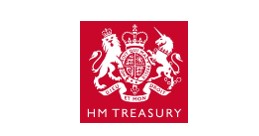
Business Rates and Investment: Call for Evidence Published
Treasury has launched a call for evidence
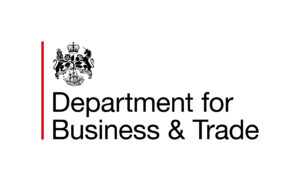
Draft Code of Practice on Electronic and Workplace Balloting for Statutory Union Ballots
Consultation Published

Late Payments Consultation
DBT publishes consultation and research, alongside Small Business Plan
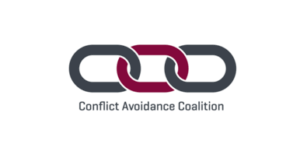
CLC Supports the Conflict Avoidance Coalition
CLC endorses the work of the CAC, and recommends that clients and contractors should adopt the Pledge
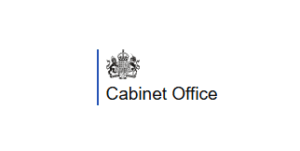
Growing British Industry, Jobs and Skills – Further Reforms to Public Procurement
Cabinet Office Publish Consultation



